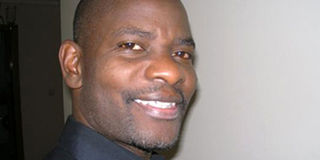What will Africa gain from having an African as WTO’s new boss?

Musaazi Namiti
The World Trade Organisation (WTO) has a new boss. She is Ngozi Okonjo-Iweala from Nigeria, where she has served as finance minister and foreign minister. She has degrees from Harvard and the Massachusetts Institute of Technology (MIT) — and is a former World Bank managing director. Her CV is all that could be desired.
In terms of calibre, profile and suitability for the job of director-general at the WTO, she seems to have everything. On LinkedIn, the networking site where professionals flaunt their accomplishments and share news of jobs they have landed, Africans and non-Africans waxed lyrical about her appointment.
For Africans, the news is even more exhilarating as Ms Okonjo-Iweala, 66, is the first Black person and first woman to head the Geneva-based organisation, which underpins 96 per cent of global trade and has boosted trade among its 164 members by 171 per cent, according to The Economist.
The excitement among Africans suggests that Africa stands to benefit a lot from having one of its own leading the WTO. Ms Okonjo-Iweala has not got her feet under her desk yet, so it is tempting to say that it is too soon to judge her. But the WTO, says The Economist, is at “the mercy of decisions taken in Washington”. In 2018, for example, Donald Trump did circumvent the WTO to impose tariffs on steel and aluminium imports, including those from US allies.
The US continues to complain of unfair treatment and has blocked nominations to seats on the WTO’s appeals body, hampering the organisation’s dispute-settlement system. This and other weighty issues, such as the ongoing trade war between China and the US, will be high up on Ms Okonjo-Iweala’s to-do list when she begins work — and they will have to be prioritised.
What Ms Okonjo-Iweala can do for her mother continent as the boss of the WTO remains to be seen. Can she help Africa boost its share of the global trade? That would be good news, but how can she do it?
According to Vera Songwe, the Cameroonian heading the Economic Commission for Africa (ECA) and one of prominent Africans behind the Africa Continental Free Trade Area (AfCFTA), “Africa’s share of trade in the global community was two per cent two decades ago and is still at two per cent despite having joined the World Trade Organisation”.
Africa lacks competitive products to sell in international markets and is still having a hard time trading with itself, a problem the AfCFTA is seeking to address. Yet if the continent increased its share of global trade by just a few percentage points, the benefits would be incredible.
Florizelle Liser, who was assistant trade representative for Africa under Barack Obama’s administration, once said that a one per cent increase of Africa’s share of global trade would generate about $70b annually. But for Africa to increase its share of global trade, it should be already making progress with intra-African trade. The AfCFTA is expected to kickstart intra-Africa trade, but there are problems. Tensions between countries such as Uganda and Rwanda persist, and trade is effectively on hold. What is more, the East African Community (EAC) is limping; North Africa and the Horn of Africa remain unstable.
Ms Okonjo-Iweala fits the bill, but she may complete her term when trade in Africa, and with the rest of the world, is still dismal. This is not Afro-pessimism; it is realism — a way of seeing, accepting and dealing with situations as they really are without being influenced by emotions or false hopes.
Mr Namiti is a journalist and former
Al Jazeera digital editor in charge of the Africa desk
[email protected] @kazbuk




